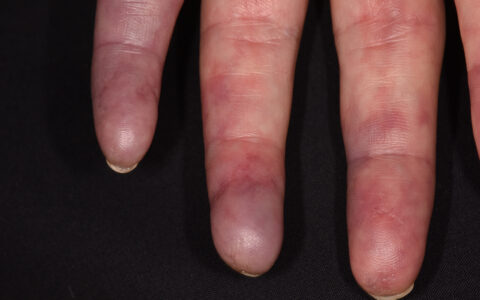Annual price increases for specialty rheumatology drugs are outpacing savings gained from the closure of the Medicare Part D coverage gap (the “donut hole”) – according to an analysis published in JAMA Open this spring by a pair of researchers at Vanderbilt University Medical Center.
The researchers found that when the coverage gap began closing (between 2010 and 2011), out-of-pocket spending for the drugs dropped 34 percent. But since that time, drug list prices have ticked up an average of 160 percent.
“More than half of those savings were lost by 2019 because of annual increases in list prices, even as the coverage gap continued to close in subsequent years,” wrote Stacie B. Dusetzina, Ph.D., associate professor of health policy, and medical student Alexandra Erath of Vanderbilt.
“More than half of those savings were lost by 2019 because of annual increases in list prices.”
Evolving Drug Coverage
In 2010, the Affordable Care Act (ACA) started the decade-long process of closing the Medicare Part D coverage gap and lowering out-of-pocket costs for patients. The Bipartisan Budget Act of 2018 further adjusted plan contributions and manufacturer discounts for drugs.
By 2019, beneficiaries in the coverage gap paid approximately 25 percent of a brand-name drug’s list price, Dusetzina explained. Beneficiaries who cross the threshold into the “catastrophic phase” of Medicare Part D coverage remain responsible for five percent of drug list prices.
Out-of-pocket Expenses
Dusetzina and Erath tracked list prices of specialty rheumatoid arthritis drugs throughout the legislative changes, to understand the true costs to patients. They calculated out-of-pocket expenses for a 12-month supply of 17 drug and strength combinations in each year.
For the six drugs that were available throughout the study period, the list price increased annually. The price increases meant the 34 percent reduction in out-of-pocket costs patients saw between 2010 and 2011 shrunk to only 21 percent by 2019.
Put into dollars, the researchers found rheumatology patients went from paying out-of-pocket expenses averaging $6,108 (in 2010) to $4,026 (in 2011, after the ACA) to $4,801 in 2019.
The analysis also showed higher spending in the Medicare Part D catastrophic phase for patients who use these drugs chronically, with a 22 percent increase in expected catastrophic phase spending between 2010 and 2019. A growing number of patients have high spending in the catastrophic phase, which Dusetzina noted increases taxpayer spending on the Medicare Part D benefit.
Call for Action
The researchers say current financial protections cannot keep pace with price increases for specialty drugs like those used to treat rheumatoid arthritis. Their analysis found four of the five drugs that entered the market between 2011 and 2015 already had higher annual out-of-pocket costs by 2019.
Rheumatology patients may be especially vulnerable to price hikes, as they represent one of the largest markets for expensive, specialty biologics, said Leslie J. Crofford, M.D., Wilson Family Chair in Medicine and director of the Division of Rheumatology and Immunology at Vanderbilt.
“Autoimmune inflammatory diseases are chronic, thus there is a need for consistent, long-term therapy regimens to keep conditions like rheumatoid arthritis under control,” Crofford said. “Although there has been a dramatic increase in the available treatment options, there has been a surprising lack of effect of this competition on the price of drugs.”
Policy that includes out-of-pocket caps is one option, Dusetzina said. “There are bills in Congress that would address both the increasing prices of biologics and that would help to lower out-of-pocket costs for Medicare beneficiaries who need these drugs,” she said. “We need real reforms that lower drug prices and out-of-pocket costs.”





